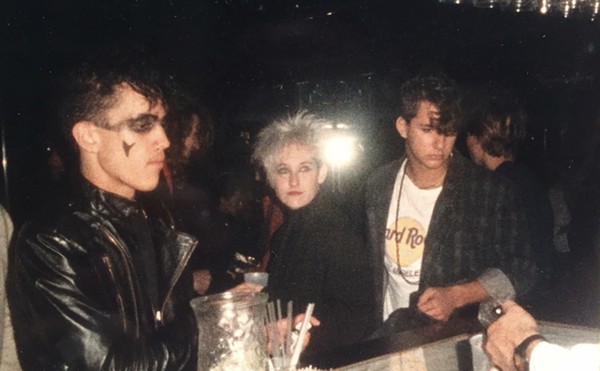But here it is, and forget about turning it away, because it's been many years since the arrival a band like this: over a decade, in fact, on the Cowboy Junkies' 1989 Trinity Sessions. As with the Junkies, Hem showcases a woman who sings lyrics written by a man, but convinces you the words are her own. Sally Ellyson's voice is reminiscent of the Junkies' Margo Timmins - both are solid but fringed with enough breathiness that the phrases sound whispered in your ear - but the voice of Hem is less husky: when Ellyson sings a lullaby, she's a young mother subduing an infant, not a barfly praying for dawn to keep a healthy distance.
And where the Junkies' landmark record was as spare as the single-room church it was made in (allegedly recorded with one microphone and $250), Rabbit Songs constructs spires and bell towers on its acoustic base; its unrepentantly lush arrangements incorporate full string sections and other orchestral instruments without betraying the songs' folky origins. Whether resurrecting an old-as-the-hills number like "The Cuckoo" or painting a portrait ("When I Was Drinking") as specific as a Raymond Carver story, the pedal steels and glockenspiels never overwhelm the simple melodies floating above them.
The new Cat Power record features a couple of string sections as well, but there's never even a question of them overwhelming the songs. In fact, although CP's Chan Marshall isn't the only musician on You Are Free (Matador), you'd be hard-pressed to find any other fingerprints on it. Even when she covers Michael Hurley or John Lee Hooker, Marshall's funereal tempos and hypnotic guitar make the songs sound like pages from her own notebook.
Cat Power's music often gets labeled "sadcore," and some of her previous albums have been homogenous enough to beg such a reductive label. But Marshall's tight, pained cry is more intense than anything that ever escaped Elliott Smith's throat, and only half her songs have the somnambulant feel of Low. (No slag intended toward either of those artists.) Here, she makes a point of slipping the skeletal, guitar-and-voice tracks in between such fleshier ones as "He War" and "Shaking Paper" (where the Foo Fighters' Dave Grohl, credited "D.G.," sits in on drums). Her studio constructions get wild on "Free," which is mostly an acoustic guitar loop and Marshall's multi-tracked vocal; over the course of the song, she drops in little chunks of drum lines or distant, distorted organ sounds. By the end of the track, the music has become a pulsing, complicated echo of the song's self-consciously simple nightclub lyrics ("take a chance / a true romance / when you dance").
By the record's closing tracks, Cat Power is back in dirge mode, overdubbing her introspective mumble not with her own wailed backing vocal but with Eddie Vedder's low, deferential near-monotone. A single echoey piano begins and ends the last song, which talks like a call to action but walks like defeat - not the most optimistic end for a record called You Are Free, but then again, liberation is usually a mixed blessing. •
















